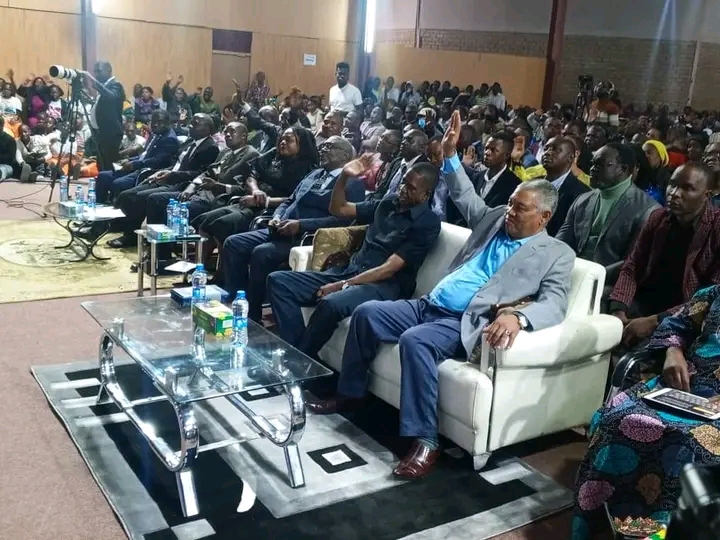By Ollus Ndomu
Former Republican President Edgar Lungu has hinted at the possibility of regime change in Zambia before the next scheduled general elections in 2026. Addressing congregants at Dunamis Miracles Church in Lusaka, Lungu expressed confidence in the newly formed United Kwacha Alliance (UKA), a political movement he recently joined.
Lungu’s remarks have stirred significant controversy, with many Zambians interpreting his statements as veiled threats or calls for unconstitutional actions. “The United Kwacha Alliance has clever minds that can make that change happen,” Lungu told the churchgoers, sparking a flurry of reactions both online and offline.
Defiance and Legal Controversies
In a bold challenge to authorities, Lungu also declared his refusal to comply with police requirements for movement permits. “I dare the police to arrest me for moving about without a permit,” he said, adding that he does not require such a permit for his activities. This defiant stance has further inflamed tensions between the former president and the current administration.
Zambians have taken to social media to voice their concerns, with many branding Lungu’s comments as treasonous and urging the government to investigate his actions and statements. The online backlash reflects a deepening divide in the country’s political landscape, where Lungu remains a polarizing figure.
Government’s Response
In response to the escalating rhetoric, Home Affairs and Internal Security Minister Jack Mwiimbu addressed journalists on Saturday, May 18, 2024. Mwiimbu dismissed calls from the opposition for an early general election, reaffirming the government’s commitment to the current electoral timeline. “There will be no early general election. The scheduled 2026 elections will proceed as planned,” Mwiimbu stated emphatically.
The minister’s comments were aimed at quelling speculation and stabilizing the political atmosphere, which has been increasingly charged since Lungu’s remarks. Mwiimbu also reassured the public that the government is monitoring the situation closely and will act within the bounds of the law to maintain order.
Political Landscape
Lungu’s return to the political forefront comes at a time when Zambia is grappling with various socio-economic challenges. The ruling party, under President Hakainde Hichilema, has been working to address these issues but faces criticism from opposition groups who argue that progress has been slow.
The formation of the United Kwacha Alliance and Lungu’s involvement add a new dynamic to Zambia’s political scene. UKA, which positions itself as a coalition of forward-thinking individuals, aims to present a formidable challenge to the ruling United Party for National Development (UPND) in the upcoming elections.
Public Sentiment
The public’s reaction to Lungu’s statements has been mixed. While his supporters praise his boldness and leadership, critics accuse him of attempting to destabilize the country. The accusations of treason and the demands for an investigation highlight the fraught nature of Zambian politics.
As Zambia moves closer to the 2026 elections, the actions and rhetoric of key political figures like Lungu will undoubtedly shape the political discourse. For now, the government’s focus remains on maintaining stability and ensuring that the democratic process is upheld.
In the coming months, it will be crucial to watch how these developments unfold and what strategies the opposition and the ruling party will employ as they vie for control of Zambia’s political future.


